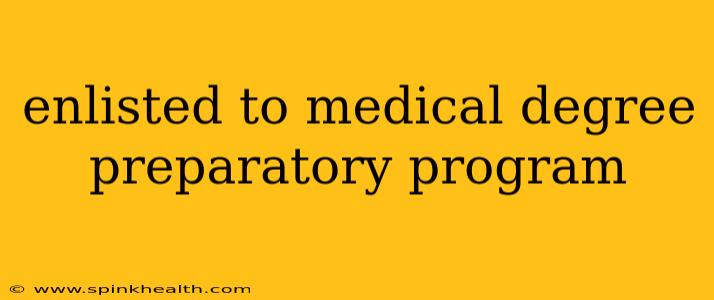The crisp, clean scent of antiseptic still clings to my memory, a stark contrast to the earthy smell of the boot camp I'd just left behind. My life took an unexpected turn, a sharp right angle away from the rigid discipline of military life and toward the intricate world of medicine. My enlistment wasn't just a period of service; it was a springboard, launching me into a medical degree preparatory program – a journey I never anticipated, but one I wouldn't trade for anything.
My path wasn't straightforward. I joined the military fresh out of high school, driven by a sense of duty and a need for structure. The camaraderie was intense, the challenges relentless. But amidst the drills and deployments, a quiet seed of ambition began to sprout. Witnessing the dedication and skill of the medics during field exercises ignited a fascination with the human body, its resilience, and its vulnerability. I saw firsthand the power of healing, the profound impact a compassionate touch could have on a wounded soldier. This experience fundamentally shifted my perspective. The structured environment of the military, while demanding, instilled in me the discipline and resilience necessary to tackle the rigorous demands of medical school.
What is a Medical Degree Preparatory Program?
This is a question many people ask, and it's a crucial one. A medical degree preparatory program isn't a single, universally defined entity. Instead, it's an umbrella term encompassing various pathways designed to help individuals, often those from non-traditional backgrounds like the military, prepare for the demanding academic rigors of medical school. These programs typically offer:
- Academic Support: Intensive coursework in science subjects like biology, chemistry, and physics, often tailored to the specific requirements of medical school applications.
- MCAT Preparation: Dedicated classes and resources focused on acing the Medical College Admission Test (MCAT), a crucial component of the medical school application process.
- Application Guidance: Assistance with the complex and often daunting process of applying to medical schools, including writing personal statements, crafting compelling resumes, and navigating the interview process.
- Mentorship and Support: Access to experienced advisors and mentors who can provide guidance and support throughout the application journey.
Is military experience helpful for medical school?
Absolutely! My experience proved this. The military instilled in me valuable traits highly sought after in aspiring physicians:
- Discipline and Resilience: The ability to withstand pressure, manage stress, and persevere through challenging situations is invaluable in the demanding world of medical school and beyond.
- Leadership and Teamwork: Military life necessitates collaboration and leadership skills, both critical in a collaborative healthcare environment.
- Problem-Solving Skills: Military training hones critical thinking and problem-solving abilities, essential for diagnosing and treating patients effectively.
- Compassion and Empathy: Witnessing the vulnerability of fellow soldiers fostered a deep sense of empathy and compassion, qualities essential for effective patient care.
What are the benefits of a medical degree preparatory program for veterans?
These programs offer invaluable benefits specifically tailored to the unique needs of veterans:
- Bridging the Gap: They help bridge the gap between military experience and the academic requirements of medical school.
- Structured Learning Environment: After the structured environment of military life, this offers a structured and supportive learning environment to facilitate successful transition.
- Targeted Support: Many programs offer specific support for veterans, addressing unique challenges they may face, such as accessing financial aid or dealing with PTSD.
How do I find a Medical Degree Preparatory Program?
Research is key. Look for programs affiliated with universities or established organizations. Consider factors like location, program curriculum, faculty expertise, and available support services. Many veterans organizations also offer resources and guidance for finding suitable programs.
What are the common challenges faced by enlisted personnel seeking admission to medical school?
The transition from military life to the academic world is not always easy. Common challenges include:
- Academic Gaps: Bridging any gaps in prerequisite coursework.
- MCAT Preparation: Achieving a competitive MCAT score.
- Application Process: Navigating the complex application process.
- Financial Considerations: Securing funding for tuition and living expenses.
My journey from enlisted soldier to medical student was far from easy, but the preparatory program provided the structure, support, and guidance I needed to succeed. It's a testament to the power of perseverance, and a reminder that even the most unexpected paths can lead to fulfilling careers. The antiseptic scent no longer feels distant; it's a fragrance that represents the culmination of my dedication, the promise of a future dedicated to healing, and a life transformed by purpose.

